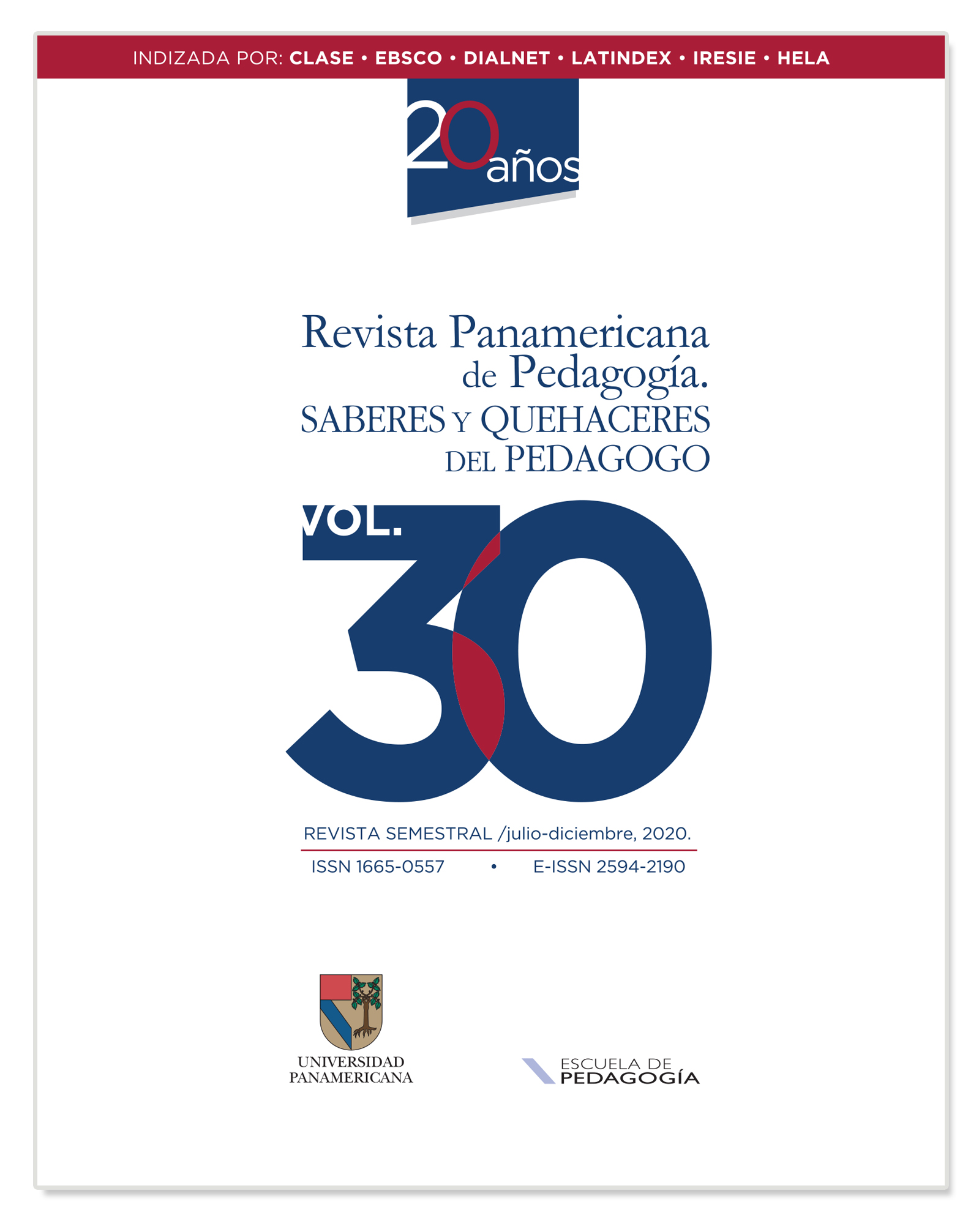Published 2020-07-02
Keywords
- autoridad,
- educación,
- moral,
- Pedagogía,
- sociedad
- ser social,
- individuo,
- tradición ...More
Copyright (c) 2020 Revista Panamericana de Pedagogía

This work is licensed under a Creative Commons Attribution-NonCommercial-ShareAlike 4.0 International License.
How to Cite
Abstract
The article seeks to expose the pedagogical approach contributed by the French David
Emilie Durkheim (1958-1917), from the sociology of education, to make effective the
project that the French Third Republic had to forge on the new society and the new
social being that he intended. For this purpose, the conceptual foundations that shape
the author’s sociological approach to pedagogy and education are examined, as well
as its relationship with the unified theoretical-practical project of a new society and
new social being, which is presented in four aspects. : I. The context: definition and the
Third French Republic; II. The condition: pedagogy; III. The means: education; IV. The
purpose of pedagogy: the society. The article provides a theoretical and interpretative
review of Durkheim’s contribution to the field of sociology of education, highlighting
the political connotation that his ideas contained in this field, and the methodological
teaching considered current, which suggests the theoretical and practical development
of pedagogy, first of all by understanding the social dynamics and the particular moral
demands of each society rather than the nonconceptual and ahistorical importation of
inflexible pedagogical models.
References
- Abbagnano, N. y Visalberghi, A. (2007). Historia de la pedagogía. Madrid: Fondo de Cultura Económica.
- Carmona Sánchez, L. A. (2015). Neuroeducación: enseñar en el siglo XXI. Monografías Aso-ciación Educar. Recuperado de: http://www.asociacioneducar.com/monografias-do-cente-neurociencias/monografia-neurociencias-luis.alberto.carmona.sanchez.pdf
- Durkheim, E. (1979). Educación y sociología. Bogotá: Linotipo.
- Durkheim, E. (1976). Educación como socialización. Salamanca: Ediciones Sígueme.
- Durkheim, E. (1974). Lecciones de sociología. Buenos Aires: La Pléyade.
- Durkheim, E. (2002). La educación moral. Madrid: Morata.
- Hazard, P. (1982). Los libros, los niños y los hombres. Barcelona: Juventud.
- Jaeger, W. (1980). Paideia: los ideales de la cultura griega. México: Fondo de Cultura Económica.
- Lepenies, W. (1994). Las tres culturas. La sociología entre la literatura y la ciencia. México: Fondo de Cultura Económica.
- Lukes, S. (1984). Emile Durkheim. Su vida y su obra. Estudio histórico-crítico. Madrid: Siglo Veintiuno.
- Pérez Tapias, J. A. (1995). Filosofía y crítica de la cultura. Madrid: Trotta.






